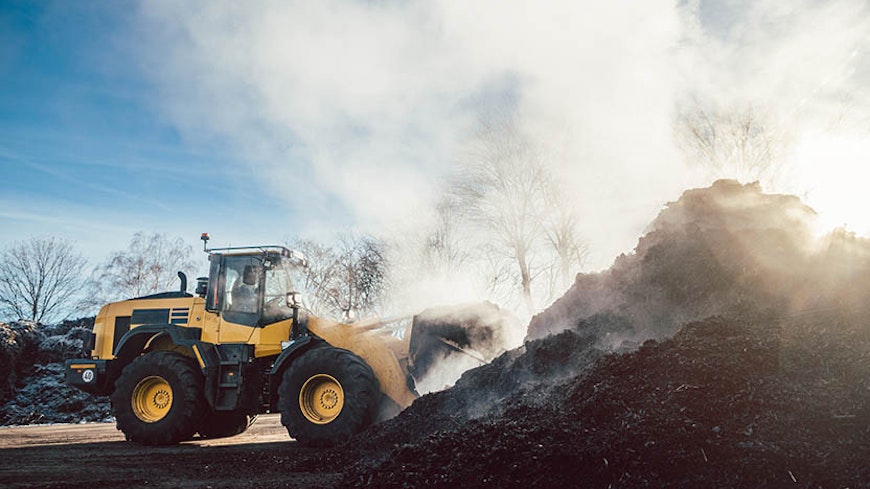
By Rebecca Styles
Research Lead | Hautū Rangahau
Kelly Hibbert is a keen gardener, growing tomatoes and vegetables from seed. But after putting her plants in the tunnel house last summer, she noticed something was wrong. The plants ended up stunted and deformed, and she had to throw them away.
Hibbert suspected the compost might have been contaminated with a herbicide called clopyralid. It wouldn’t be the first time this herbicide has been found in compost.
Our test of six compost brands found one product with levels of clopyralid (410 parts per billion or ppb) well above the detection limit (20 ppb).
The compost, a 35L bag of Nichol’s Mushroom Compost, was sold by Nichol’s Garden Group in Dunedin. General manager Rhys Gibbs pulled the compost from sale when we advised the company of our results.
What is clopyralid?
Clopyralid is a common herbicide, used to control broadleaf weeds, such as thistles, dandelions and clovers.
It can get into compost when grass clippings or other green waste sprayed with the herbicide are composted. It can also get into compost via chicken manure if the birds have consumed contaminated feed.
Kerry Harrington, Massey University associate professor in weed science, said clopyralid typically causes twisting of stems and “cupping” of leaves.
While some plants are tolerant to clopyralid, crops such as peas and tomatoes aren’t, Harrington said.
“Anything between one and 50ppb could be problematic, depending on what the compost is being used for.”
The compost trail
The Nichol’s compost pulled from the shelves in Dunedin contained material originally sourced from Meadow Mushrooms. Based in Canterbury, Meadow Mushrooms makes 1200 tonnes of compost a week to grow its mushrooms. The compost is made using wheat straw and chicken manure.
Once the mushrooms are picked, the “spent” compost is available as a waste material and can end up in compost stocked at local garden centres.
Meadow Mushrooms thinks the clopyralid may have come from compost ingredients treated with the chemical.
The company said it ran tests a few years ago and found low levels of the herbicide in some compost samples. Given our results, Meadow Mushrooms said it now requires spray diaries from its straw suppliers and is conducting further assessments of its supply chain.
It said the “spent” compost isn’t suitable growing material, on its own, for most plants.
Who’s testing?
Clopyralid contamination of compost isn’t a new problem.
Back in 2008, use of the herbicide for controlling weeds in home gardens was banned after domestic lawn clippings containing the substance were found to be affecting commercial compost operations.

Only nine of the 33 compost manufacturers we contacted told us they were still testing for clopyralid.
But that didn’t solve the problem. A 2014 survey by the Waste Management Institute (WasteMinz) reported seven compost facilities had detected clopyralid in their products.
When we asked operators whether they were still testing for this contaminant, just 14 of 33 replied. Nine said they were testing. Five others advised they didn’t process green waste, one of the main sources of clopyralid.
Big brand Yates said its supplier tests a sample from each row of compost for clopyralid before its bagged and sold. If the herbicide is detected, the compost isn’t used.
Daltons, another big manufacturer, said it tests all products on a six- and 12-month cycle at an independent lab. It also carries out growing tests year-round. The company produces compost for its own brand as well as for brands 7in1, Big Value, Garden Time and Kiwi Garden.
Tui Products, a brand readily available in garden centres and hardware stores, said its compost suppliers regularly test for clopyralid.
As things stand, there’s no requirement for manufacturers to test their products. In 2005, a compost standard was developed by the industry, setting residue limits for some contaminants. However, it remains voluntary and doesn’t specify limits for clopyralid.
In 2016, WasteMinz asked the Environmental Protection Authority (EPA) to consider whether there were grounds to reassess the use of clopyralid. While the EPA considered there were valid grounds, the chemical isn’t a priority for review. That means any reassessment would need to be funded by WasteMinz or another organisation.
If you’re buying compost, ask whether it’s been tested for clopyralid and whether the manufacturer follows the voluntary standard. Retailers have obligations under the Consumer Guarantees Act to ensure the products they sell are fit for purpose. Compost contaminated with clopyralid wouldn’t fit the bill.
“Organic” matters
We found compost advertised as “organic plant-based material” and “rich organic matter” but there’s more to the term organic than meets the eye.
The Ministry for Primary Industries defines “organic” as products produced following organic farming principles, which restrict the use of synthetic chemicals and genetically modified organisms.
However, on compost products the term “organic” can just refer to the organic matter used – the manure and green waste.
If you want compost suitable for growing organic produce, your best bet is to look out for products with a recognised certification logo, such as BioGro.
BioGro-certified compost is made with material sourced from organic production. However, it can also contain ingredients from non-organic production, provided these ingredients aren’t contaminated by prohibited materials, such as synthetic herbicides.
BioGro may request testing of the final product before it can be labelled with the logo.